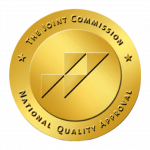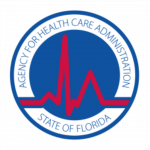What is Psychosis
Psychosis is a mental disorder where there has been some loss of contact with reality. It is a condition that affects the mind and how it processes information. This often manifests in the form of delusions, hallucinations, confused or unclear thinking, and unusual behavior. However, the symptoms vary in severity and impact.
Someone in a psychotic state can be unable to respond or understand simple questions, carry on conversations, as well as care for themselves properly. Psychosis is a symptom, not an illness, and is triggered by something bigger. This can include:
- Mental illness
- Physical illness
- Physical injury
- Extreme stress
- Trauma
- Substance abuse
What is Drug-Induced Psychosis
Drug-Induced Psychosis is a form of psychosis that results from drug use, drug withdrawal, or drug interactions. The type of drug most frequently associated with drug-induced psychosis is stimulants.
Psychosis is a common and usually temporary mental health symptom. However, when using drugs such as cocaine, cannabis, and hallucinogens, it can exacerbate the symptoms of some mental illnesses.
What Causes Drug-Induced Psychosis
Drug-induced psychosis is different than drug abuse or drug addiction. Drug abuse can refer to the use of any drug for nonmedical reasons, while drug addiction centers on the compulsive behavior of using drugs.
The reasons drug-induced psychosis can occur are complex. Drugs that trigger psychosis usually act on the brain by releasing excessive levels of the neurotransmitters dopamine and glutamate. Any drug that speeds up brain function can also trigger psychosis in some people. Stimulants, which are drugs that excite or speed up certain functions of the brain, including heart rate and breathing, are the most common drug to cause drug-induced psychosis.
Symptoms
The symptoms of drug-induced psychosis may be the same as schizophrenia. If drug abuse is prolonged, psychosis can also cause brain damage. Furthermore, the length of drug-induced psychosis varies depending on which drug is used, dosage amount, and how it was taken.
Symptoms are more likely to subside on their own if psychosis is caused by drug abuse and not drug addiction. However, if drug use continues or resumes drug abuse can become drug addiction and prolong the psychosis.
Some of the symptoms include:
- Emotional changes, such as not showing emotion and difficulty expressing feelings
- Violent or erratic behavior
- Social withdrawal
- Lack of motivation and lethargy
- Disorganized speech, thoughts, and actions
- Paranoia
- Hallucinations
- Delusions
- Disconnection from other people or from reality
How Long Does it Last
The length of drug-induced psychosis varies depending on the drug as well as the dosage. Some symptoms typically last for a few hours or until the drug has cleared from the body. However, heavy drug users may experience longer-lasting symptoms due to the amount of the drug in the body. In most cases, drug-induced psychosis typically only lasts a day.
The psychosis symptoms can also last longer when there is an underlying mental health condition, such as schizophrenia or bipolar disorder. In these cases, drug-induced psychosis can cause long-term mental health issues.
Treatment Options
Treatment for drug-induced psychosis varies depending on the drug causing it. People who are experiencing psychosis should not stop using drugs without the help of a doctor. Stopping drug use suddenly can lead to further complications, including drug withdrawal symptoms and seizures.
It is important to seek out treatment if you are suffering from drug addiction before symptoms of psychosis begin to occur. If you are struggling with mental health or addiction and are ready to take the first steps in recovery contact us at the Harm Reduction Center in South Florida. At Harm Reduction Center we offer individualized treatment options for addiction and mental health. We want nothing more than to see you succeed and combat your struggles.














